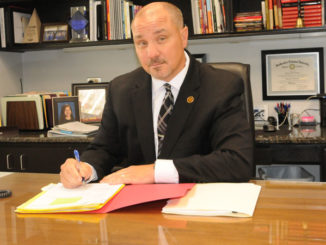
Michael Leavitt knows the clock is ticking on his tenure as Secretary of the U.S. Department of Health and Human Services. Before he leaves in less than three years, there are certain things he is keen on accomplishing. One of them is to revamp a poorly performing health care system in Louisiana, one that was saddled with problems long before Hurricanes Katrina and Rita slammed into the state last year.
Secretary Leavitt knows something about health care reform. While serving as the popular and highly successful governor of Utah, the state legislature adopted his “Healthprint” program, which proved to be a comprehensive approach to better health care outcomes. Some 10 years after its enactment, 400,000 additional Utah citizens have health insurance, including many formerly uninsured children. Additionally, immunization rates have increased dramatically in Utah and the cost of health insurance there is 25 percent below the national average.
Secretary Leavitt has made numerous trips to Louisiana since the hurricanes to gain personal familiarity with the status of health care issues and the priorities necessary for improving both cost and outcomes in the Bayou State. On his last trip here, he joined Governor Blanco in signing a charter that pledges a partnership between the state and federal government to revamp and improve the health care delivery systems in New Orleans and the state as a whole. A Louisiana Health Care Redesign Collaborative has been formed, and Secretary Leavitt has given the group an ambitious deadline of October 20 to present him with recommendations for ways to improve the system.
In a very real sense, Leavitt is the 800-pound gorilla in the room when Louisiana’s health care future is discussed. Why? Because the federal government pays for almost 70 percent of the health care services provided in Louisiana. Additionally, Leavitt must sign off on any federal waivers that would allow the flexibility necessary to reform our archaic health care system. The good news: Secretary Leavitt really seems to care about Louisiana and views our situation as one that could be used to design major reforms that other states could follow.
The Secretary has some definite ideas about what a new system for New Orleans and Louisiana should—and should not—include. He seems adamant that the old “two tiered” system (individuals with private insurance using private facilities and indigent users going to the charity hospitals) needs to be replaced. In his own words: “The old system may have served well in the old day, but that day is past&. (It was) fraught with inefficiency and has led to an excess of hospital beds in the private sector and a shortage in the public sector.”
In essence, Leavitt envisions a system in which health care dollars follow the patients; doctors and hospitals get paid for good outcomes and not on a “per procedure” basis; and seniors and the disabled have the option to receive care at home and not exclusively in institutions.
The Health Care Redesign Collaborative—consisting of 40 diverse individuals—will have a difficult challenge to come to a consensus on a redesign plan by October 20. Even if that happens, getting major reforms enacted by the Legislature next year will be a difficult task, since that body has been reticent to change our outmoded health care delivery system. At this juncture, the best chance for success seems to lie with Leavitt, the 800-pound gorilla in the room. He has the dollars and the hole cards, and he doesn’t appear to be squeamish at all about playing them.




Be the first to comment